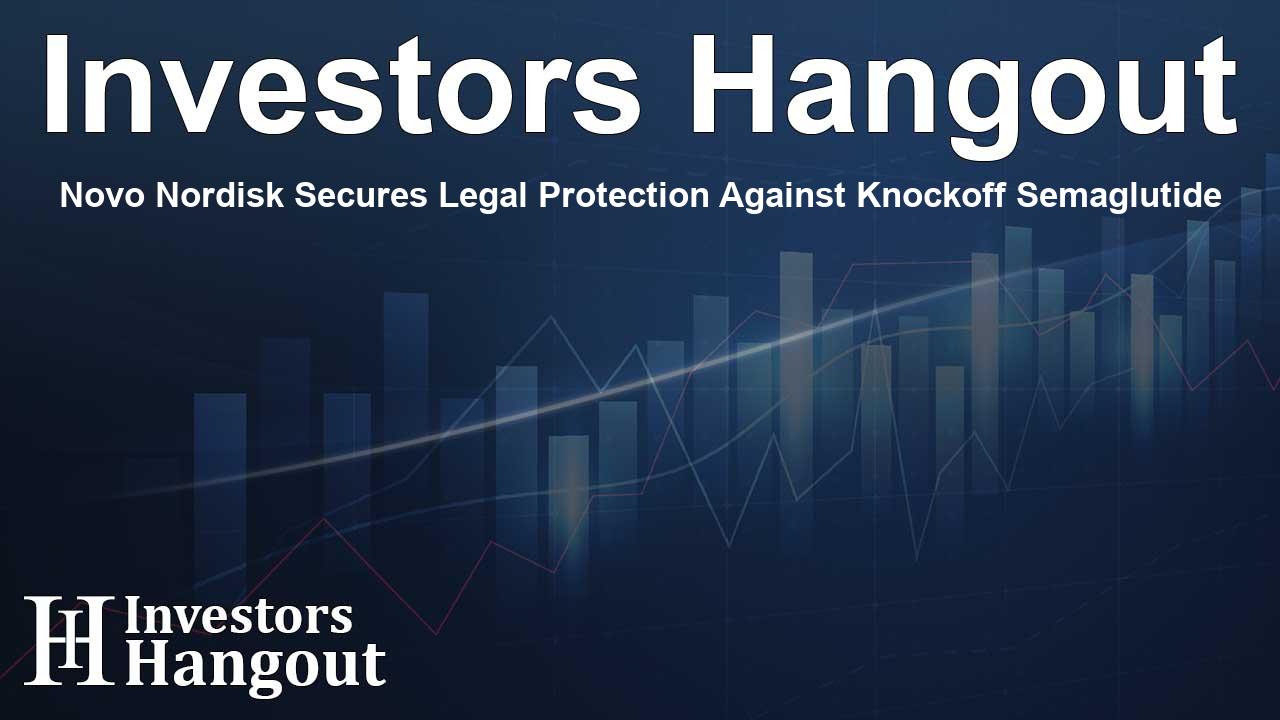Novo Nordisk Secures Legal Protection Against Knockoff Semaglutide

Novo Nordisk's Legal Efforts to Protect Patients
Novo Nordisk is actively working to ensure the safety and health of patients in the United States by winning significant legal victories against compounding pharmacies that sell knockoff versions of their medications. The recent rulings reinforce the importance of providing authentic, FDA-approved medicines like Wegovy and Ozempic, which are vital for managing diabetes and obesity. With full availability of these drugs now confirmed, patients can rely on the credibility and safety of their treatments.
Federal Court Rulings Favoring Patient Safety
In a recent federal court decision, Novo Nordisk achieved a major victory when the court upheld the FDA's determination regarding the availability of Wegovy and Ozempic. This ruling negates the claims of a compounding trade association attempting to challenge the FDA's efforts to resolve the shortage of semaglutide injectable medicines. The court's endorsement ensures that these essential medications are now fully accessible across the nation, eliminating the opportunity for pharmacies to produce compounded versions without oversight.
Protecting Patients from Unsafe Compounds
Novo Nordisk's legal strategy has involved the initiation of 111 lawsuits across various states targeting entities unlawfully marketing compounded semaglutide drugs. These actions are crucial for safeguarding patients from potentially harmful knockoffs, especially those produced with cheap or unsafe import active pharmaceutical ingredients (APIs). The integrity of semaglutide products is essential, and this ambitious legal push aims to curb the distribution of non-compliant drugs that may jeopardize patient health.
Support for Patients and Healthcare Professionals
According to Steve Benz, Novo Nordisk's Corporate Vice President and General Counsel, ensuring patient safety is a paramount concern. By engaging in legal action against these compounders, Novo Nordisk demonstrates its commitment to protecting U.S. patients from the dangers posed by illegal and unsafe medications. This initiative not only emphasizes the company’s dedication but also promotes a collaborative approach with healthcare providers to maintain the integrity of treatment.
Combatting Counterfeit Semaglutide
The growing concern regarding compounded semaglutide drugs—especially those resulting from international shipments—highlights the necessity for rigorous scrutiny. Reports indicate that certain compounds have origins linked to manufacturers that lack FDA certification, raising alarms about their safety and efficacy. The recent legal outcomes serve to educate patients and discourage engagement with dubious drug sources. Active measures are being taken to inform the public about the risks associated with counterfeit medications.
The Role of Regulatory Bodies
Regulatory agencies are stepping up to support these efforts. With the federal court's ruling, there is now greater impetus for the FDA to take action against compounding pharmacies that violate existing laws regarding medication production. The end of the grace period for these pharmacies indicates that more stringent measures are likely to follow, benefitting patient safety nationwide.
Ongoing Legal Actions and Their Impact
Novo Nordisk's proactive legal approach has led to multiple injunctions preventing compounding pharmacies from claiming their products are equivalent to FDA-approved medications. For instance, recent judgments have proved beneficial in shutting down operations that mislead consumers about the quality and safety of compounded semaglutide. Amidst these legal victories, Novo Nordisk aims to foster a more informed public, ensuring transparency and safety in medication availability.
Building Partnerships for Patient Education
As the legal landscape evolves, Novo Nordisk is determined to maintain open lines of communication with physicians and healthcare institutions, stressing the importance of using only FDA-approved treatments under professional supervision. By reinforcing partnerships and promoting transparency, they aim to further patient education on medication safety and efficacy.
Frequently Asked Questions
What are Wegovy and Ozempic?
Wegovy and Ozempic are FDA-approved medications used for managing weight and diabetes, containing the active ingredient semaglutide.
Why are compounded versions of semaglutide a concern?
Compounded versions may not adhere to safety standards or may be produced using unsafe ingredients, posing health risks to patients.
What legal actions has Novo Nordisk taken?
Novo Nordisk has filed 111 lawsuits against entities unlawfully marketing compounded semaglutide, aiming to protect patient safety.
How does the FDA ensure medication safety?
The FDA regulates the approval of medications and monitors manufacturing practices to ensure products are safe and effective for public use.
What should patients know about semaglutide?
Patients should only use semaglutide products that are FDA-approved and prescribed by licensed healthcare professionals to ensure their safety and efficacy.
About The Author
Contact Olivia Taylor privately here. Or send an email with ATTN: Olivia Taylor as the subject to contact@investorshangout.com.
About Investors Hangout
Investors Hangout is a leading online stock forum for financial discussion and learning, offering a wide range of free tools and resources. It draws in traders of all levels, who exchange market knowledge, investigate trading tactics, and keep an eye on industry developments in real time. Featuring financial articles, stock message boards, quotes, charts, company profiles, and live news updates. Through cooperative learning and a wealth of informational resources, it helps users from novices creating their first portfolios to experts honing their techniques. Join Investors Hangout today: https://investorshangout.com/
The content of this article is based on factual, publicly available information and does not represent legal, financial, or investment advice. Investors Hangout does not offer financial advice, and the author is not a licensed financial advisor. Consult a qualified advisor before making any financial or investment decisions based on this article. This article should not be considered advice to purchase, sell, or hold any securities or other investments. If any of the material provided here is inaccurate, please contact us for corrections.
